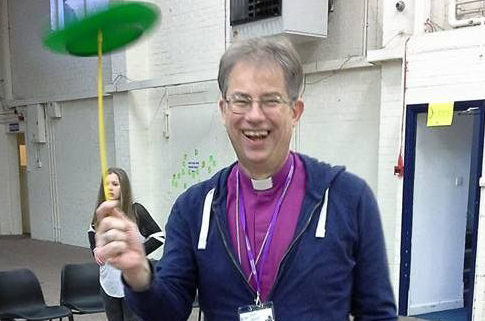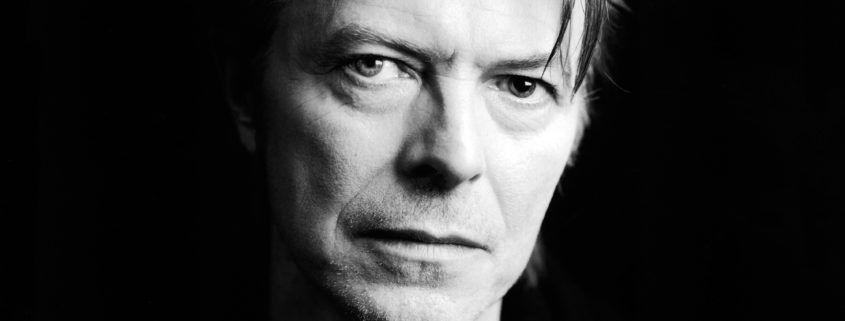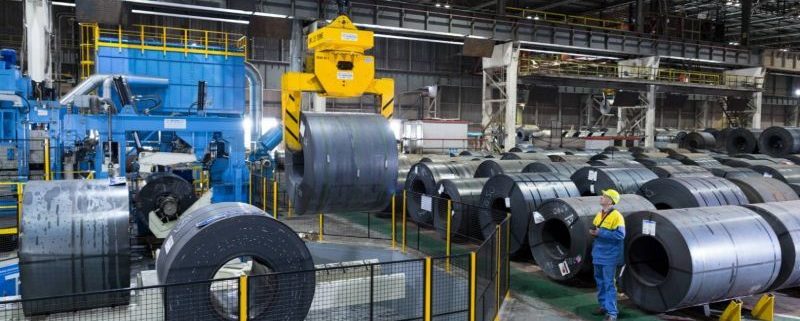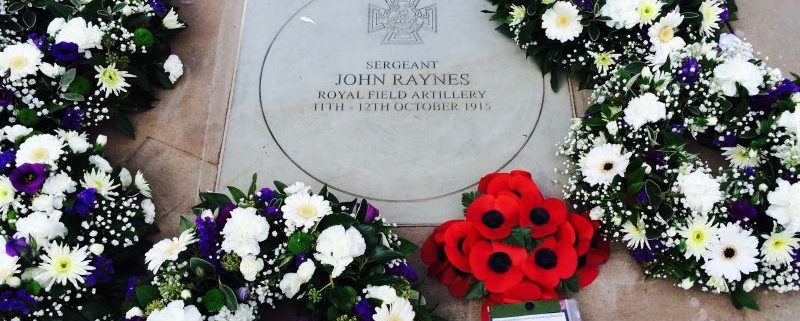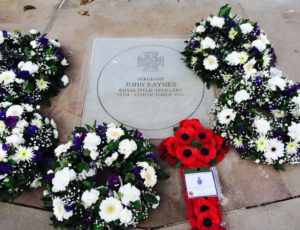The new General Synod meets for the first time next week. A central part of our agenda over the next five years will be the ongoing Reform and Renewal process.
Here is an unofficial Noddy and Big Ears Guide to Reform and Renewal. It’s a Noddy guide because I’ve tried to make it simple. It’s a Big Ears guide because the whole Reform and Renewal process is about listening to what’s happening across the country and developing a response.
This is also something of a personal perspective. I’ve been closely involved in the story so far. To use a Star Trek analogy, let me take you on a guided tour: first to the Captain’s Log to explore the deeper story; then to the Engine Room to understand what’s being proposed; and finally to the Bridge to look ahead into the future.
Captain’s Log: looking back…..
The roots of Reform and Renewal lie in the immense change taking place in the society we serve. The Church of England has lived through a century of change.
We lived for fifty years, from 1915 to 1965, through the end of Christendom: the idea that society is uniform and that people are Christian unless they opt out, that church going is the norm. We have had to adjust our ways of being the Church to that new reality. We have needed to recover, especially, the central idea that God calls us to be a church in mission to our own society, the call to make disciples and the call to set God’s mission at the heart of our common life.
We then lived for fifty years and more with a mistaken understanding of secularisation. Secularisation began in the 18th century. It’s the process by which science, democracy, technology and economics became separate from any particular religion (and in that sense it’s closely related to the end of Christendom). This process has brought immense benefits.
But from the 1960’s until very recently, secularisation has been linked with another powerful idea. The notion that the more advanced a society, the less place it has for religion of any kinds. In the 1960’s, 1970’s and 1980’s, many people predicted and believed that the role of faith in society would shrink away to nothing as our society “advanced”.
We have adjusted our ways of being the Church to this reality as well. For many years, many in the Church have accepted our decline as inevitable. Many have even planned for that decline to continue as if this was God’s purpose for the Church. The loss of confidence has been profound. We have needed to recover the central Christian virtue of hope: the sure hope that God has a purpose for his church and for this Church of England for many generations still to come.
The sociologists now tell us what we have known for some time. The role of faith in the modern world is not shrinking but growing and also changing. Britain is not becoming more secular. Religion and religious affiliation are changing all the time, but the role of faith in public life and private life is not less but more significant.
The former chief Rabbi, Jonathan Sacks, has recently published a powerful study of violence and religion, Not in God’s Name. Lord Sacks begins with a study of secularization and the gaping hole it leaves in human understanding.
“Science, technology, the free market and the liberal democratic state have enabled us to reach unprecedented achievements in knowledge, freedom, life expectancy and affluence. They are among the greatest achievements of human civilization….But they do not and cannot answer the three questions every(one) should ask at some time in his or her life: “Who am I? Why am I here? How then should I live?”.
Rabbi Sacks puts forward the view that the coming century will be more not less religious, less not more secular. How should we respond?
A hundred years of change. The end of Christendom. The beginning and end of secularization. How are we as the Church of England to respond to God’s call in our day? How are we to join in God’s mission and to make that response in faith and hope and love?
Reform and Renewal is part of an answer to these vital questions.
The Engine Room: what are the proposals?
Five years ago, the General Synod of our Church agreed three core priorities.
The three goals are these: to serve the common good of our society, to grow the life of the church in the numbers and the quality of our discipleship; and to re-imagine the ministry we offer to the nation. The first two are inextricably linked. We see growth and life in many places but in too many the combined effects of declining and ageing congregations mean that in ten years time, we may no longer be a church in every place. To serve the common good and the whole people of England we must pay close attention to growth in the life of the Church.
Those goals are widely and deeply owned across the Church of England. You will find something like them in the vision statements of many dioceses and parish churches. They have been at the heart of the work of our national Church for the last five years.
But it takes time in a Church of the size and complexity of the Church of England to listen, to reflect, to begin to shape answers to those key questions. How should be respond to God’s mission in hope? How do we better serve the common good, grow the life of the church and re-imagine the ministry we offer. What can we do nationally to support dioceses and parishes?
Little by little, through a process of listening, conversation and research some answers and some initiatives began to emerge. There are six or seven different streams of work. They began at slightly different times and different places. They are also in different stages of discussion or implementation.
One is looking at how we use our historic assets to support growth rather than reward decline; another is exploring ministerial education, another at simplification, another senior leadership and still another what we need to do nationally and so on. They are all linked together in some way. For that reason, it’s helpful to see them as one process under the single heading of Reform and Renewal: helping us to be a Church of hope, a Church engaging in God’s mission, a Church of compassion and a Church preparing for a harvest.
If you really want to spend more time with Scottie in the engine room trying to get us to warp speed, then read this summary paper for Synod.
The Bridge: scanning the horizon
That’s the big picture. I want to zoom in now, if I may, and ask the question what difference the Reform and Renewal programme might make to the life of the Church of England over the next fifteen years, if it bears the fruit we hope it will, by the grace and power of God. It’s not a programme designed to tackle everything. The core ministry of the local church remains at the heart of the Church of England: worship, witness, service to the local community.
But here are some of the things which I hope will change over the next fifteen years as Reform and Renewal bears fruit in the life of the local parish church.
A culture of discipleship
First I hope and pray that every church will become better at making and sustaining and equipping disciples: that Christians will understand their faith better, share it more confidently, live it out more fully. We need to grow again a culture of discipleship across the Church of England.
The Christian faith is not a hobby or a leisure activity. The Christian faith is a response to the grace of God in Jesus Christ with the whole of our lives, for the whole of our lives, offering lives which have been made whole.
Every local church, every diocese needs a plan for taking forward that culture of discipleship, for growing new Christians, for sustaining established Christians.
Reform and Renewal is helping to make resources available for that task. There are key proposals to change and increase the Church Commissioners distribution of funds to support poorer parishes and to support growth in numbers and in the depth of discipleship. There is a major emphasis on how we teach the faith, how we encourage discipleship in every place.
Energy for mission
Second, I hope and pray that every church will focus greater energy and resources on God’s mission and worship, service and witness. That means less time on bureaucracy, form filling, administration and the like.
A major strand in Reform and Renewal is about simplification: on how we make the task of vicars, of churchwardens, of PCC treasurers and others simpler and easier in the future.
Ministry and leadership
Third, I hope and pray that every local church will have the ministry and leadership it needs to support God’s mission. Lay leadership and ministry is key and the next two years will see significant developments here. The voices of lay people need to be heard more clearly in the life of our Church. We need to invest more in training, equipping and sustaining lay ministers.
We need urgently to see more vocations to ordained ministry. 40% of our current clergy are approaching retirement. On present projections half of our clergy who retire cannot be replaced. We need as clergy to be better equipped as leaders in God’s mission. We need our clergy to be more diverse as a group. We need more younger clergy who are able to offer a lifetime to ordained ministry. We need to ask the Lord of the harvest to send labourers.
There will be a major national initiative to raise the number of vocations, significantly, by as much as 50% by 2020. That will involve every parish in prayer, in communication, in encouragement, in support. We are looking carefully at the ways in which we train clergy before and after ordination and how we fund that training. Dioceses are clear what is needed: the Church needs ordained and lay ministers who are flexible, collaborative leaders in God’s mission.
Senior leaders
Fourth I hope and pray the senior leadership of the Church of England in 10 years time will be better equipped for their task and more representative of the church we are called to lead: male and female, black and white, from a wider range of backgrounds, well prepared and committed to ongoing learning. Again we are investing intentionally in that process.
Communication in a digital age
Finally, I hope and pray we will be much more effective at communicating our faith in a digital age. This is the most important investment the Church of England needs to make nationally.
We are living through the greatest time of change in the way we communicate since the invention of the printing press. Parishes and Dioceses are moving far too slowly to keep up with those changes in the way we communicate. We need to invest much more in our digital communications in order to keep pace and contribute to Christian engagement with the contemporary world.
So what is Reform and Renewal about?
- Resources for discipleship and growth
- Focusing energy on our core tasks
- Every local church having the ministry it needs
- Equipping senior leaders
- Better digital communication
These are not the whole agenda by any means. There are other issues the Church needs to address. The world keeps changing around us.
God has called us in our generation to be salt and light, to love our neighbours as ourselves, to have compassion on a lost and bewildered generation. This is a time of turmoil. But it is also a time of hope.
Pray for our Church as we move forward and most of all, as Christ commands us, pray that the Lord of the Harvest will send labourers to his harvest field.
And finally….
This post is based on a sermon preached on 15th November in St Mary’s and All Saints, Chesterfield. I’m grateful to Father Patrick Coleman for the invitation and for the very helpful “Conversation under the Spire”.
I’m grateful to Premier Digital for an award for this blog in the category “Most Inspiring Leadership Blog”. Like everything else I do it’s a team effort. Warm thanks to Jane Perry and LJ Buxton for their research and ideas and to Kate Hill and Jason Smedley for managing posts and comments.
+Steven Sheffield
 We worshipped together. We explored Scripture. This year I spoke about living our whole lives in the rhythm of the two great commandments Jesus gives: loving God and loving our neighbour as ourselves. There were workshops on prayer, on going deeper with God, on service, on transforming God’s world. All through the morning the young people text in questions on anything to do with life and faith and, just before lunch, I try and answer them. We eat together (Subway – a big highlight). Each year this part looks a little more like the feeding of the 5,000 as small groups of teenagers gather across the conference room (there are no chairs so everyone sits on the floor).
We worshipped together. We explored Scripture. This year I spoke about living our whole lives in the rhythm of the two great commandments Jesus gives: loving God and loving our neighbour as ourselves. There were workshops on prayer, on going deeper with God, on service, on transforming God’s world. All through the morning the young people text in questions on anything to do with life and faith and, just before lunch, I try and answer them. We eat together (Subway – a big highlight). Each year this part looks a little more like the feeding of the 5,000 as small groups of teenagers gather across the conference room (there are no chairs so everyone sits on the floor).
